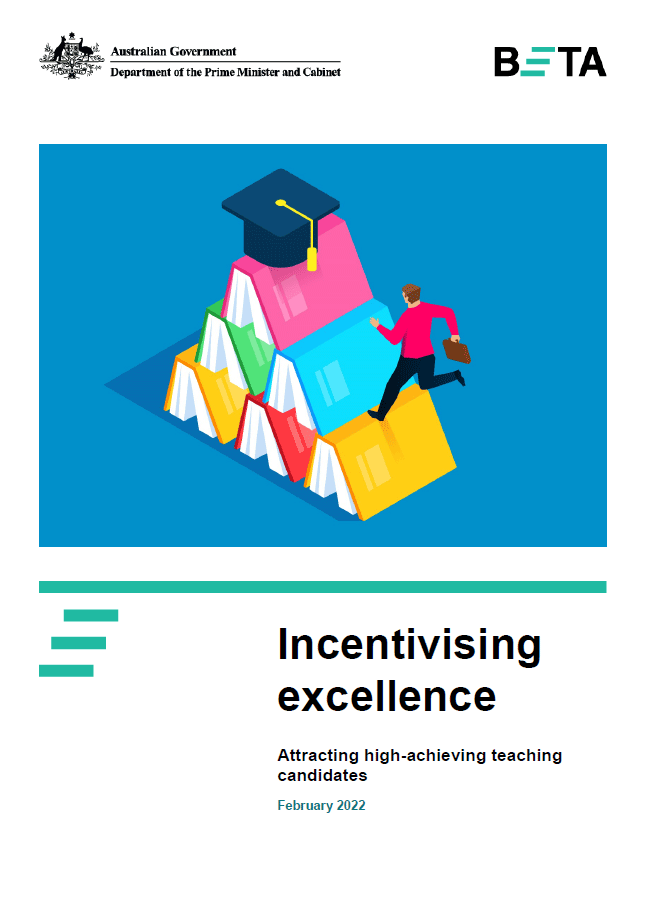Quality teachers help their students excel. In recent years, however, there has been a decline in high-achieving young adults and university-educated mid-career professionals choosing teaching as their career. This report outlines BETA’s research, commissioned by the Quality Initial Teacher Education Review, into what incentives young high-achievers and mid-career professionals find most attractive when considering a career in teaching.
To answer this question we ran an online survey containing a discrete choice experiment with 501 young high achievers and 1,432 mid-career professionals. We used the discrete choice experiment to quantify the relative importance of various incentives related to work and study, as well as a teacher’s starting and top pay.
- For young high-achievers, a $30,000 scholarship was the most effective work or study incentive, followed by guaranteed ongoing employment in a nearby school (both increased the probability of choosing a teaching job by around 12%). Most study and all work incentives were valued greater than a $15,000 increase to starting or top pay.
- For mid-career professionals, paid work throughout study, a $30,000 scholarship, mortgage/rent relief and guaranteed ongoing employment in a nearby school were the most impactful work and study related incentives.
Attracting high-achieving candidates to the teaching profession requires a careful mix of incentives and remuneration packages. This research contributes to the discussion on how such packages could be constructed.
ADDITIONAL TRIAL INFORMATION
Trial start and end dates:
22/07/2021, 9/08/2021
Ethics approval:
Macquarie University Human Research Ethics (ref: 520211038330091)
Research participants:
Our population of interest was young high-achievers (N = 501) and mid-career professionals (N = 1432) who had never studied teaching or worked as a teacher. Young high-achievers were defined as 18-25 year olds who scored an Australian Tertiary Admission Rank (ATAR) of 80 or above (or an Overall Position greater than 11 or an International Baccalaureate less than 23). Mid-career professionals were defined as 26-60 year olds who had a Bachelor’s degree or higher.
Design:
We tested four types of incentives: study, work, starting pay and top pay via a discrete choice experiment. To analyse the discrete choice experiment results, we fitted a mixed-effects logit regression. Choice of a teaching package (0 = did not choose vs 1 = did choose) was regressed on a categorical study incentives variable, a categorical work incentives variable, and two continuous variables for starting pay and top pay. We reported the marginal probabilities of choosing a career in teaching for each incentive, while holding all other incentives at the ‘baseline’ value.


